What happened to fiscal conservatism?
Tories shift from austerity to magic money trees
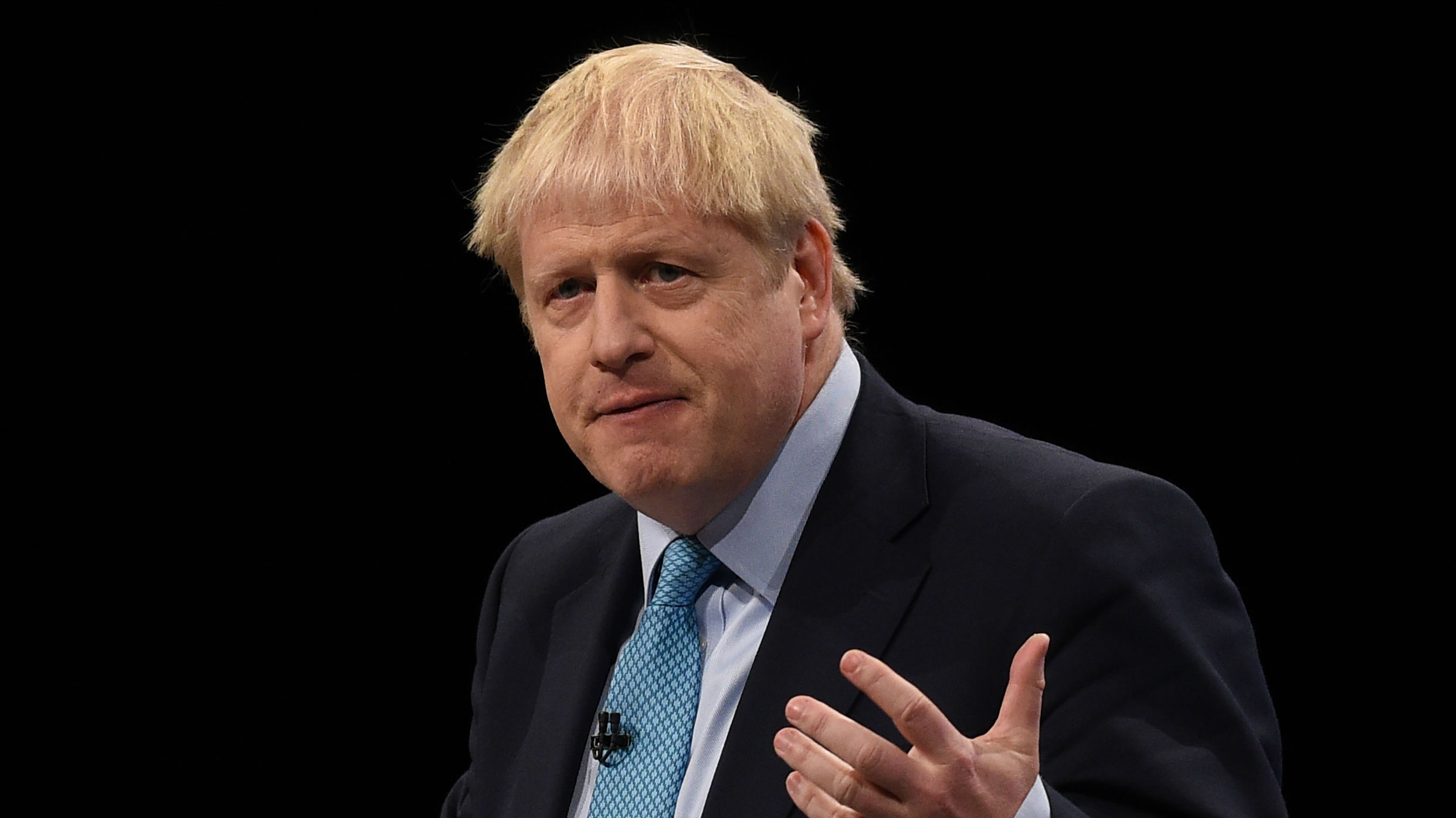
A free daily email with the biggest news stories of the day – and the best features from TheWeek.com
You are now subscribed
Your newsletter sign-up was successful
The Taxpayers’ Alliance has warned Boris Johnson against “splashing the cash” in a bid to win a snap election.
As the pro-Conservative campaign group’s boss John O’Connell notes in an article in The Times today, the Institute for Fiscal Studies (IFS) last week “laid out in stark terms how far the Tories had moved from their platform of fiscal prudence”.
The IFS said that Johnson’s plan for £13.8bn in extra spending next year on the NHS, police, education and social care amounted to the biggest rise in public spending in a decade.
The Week
Escape your echo chamber. Get the facts behind the news, plus analysis from multiple perspectives.

Sign up for The Week's Free Newsletters
From our morning news briefing to a weekly Good News Newsletter, get the best of The Week delivered directly to your inbox.
From our morning news briefing to a weekly Good News Newsletter, get the best of The Week delivered directly to your inbox.
O’Connell warns that the prime minister would not be able to afford tax cuts after such a spending spree unless he is willing to abandon government borrowing targets.
“Splashing the cash and surrendering to the cause of ever-greater spending is not in the Tories’ interests. In their hearts, they know it. And if voters work that out too, there won’t be a Thatcher-sized majority waiting for them after the election, whatever kind of Brexit they go for,” O’Connell writes.
The Times says the “surprising broadside” from the Taxpayers’ Alliance is “all the more embarrassing” for the PM “as several of his key aides used to work for the group, which has long been a cheerleader for him”.
The newspaper claims the attack “reflects growing concern among fiscal hawks as Mr Johnson prepares the Tories to fight a general election on public sector spending, targeting low-income voters who backed Brexit”.
A free daily email with the biggest news stories of the day – and the best features from TheWeek.com
In the Financial Times, Camilla Cavendish argues that “this is an existential moment for the Right in the UK”.
“If the prime minister fails to get a deal with the EU and then loses an election, the Conservative Party is over - which is why many of its footsoldiers are going along with another radical experiment: the end of fiscal conservatism,” she says.
Voters could be forgiven for being confused at this major shift in tone on public spending and debt, says Tom Rees in The Telegraph. “After years of belt-tightening, Boris Johnson has discovered a magic money tree – and just in the nick of time ahead of a probable snap election,” Rees writes.
However, he adds that while the shift may be a “cynical plot to appeal to an austerity-weary public”, Johnson’s strategy also “reflects a changing of the guard in economics”.
Essentially, the risk of public debt in the era of ultra-low borrowing costs is viewed by some economists as being safe enough for governments to relax more about their debt, Rees explains.
This argument was made by former chief economist of the International Monetary Fund, Olivier Blanchard, in a speech earlier this year.
“To people who follow the IMF, it was as if a former pope came out with an endorsement of the devil,” noted The New York Times at the time.
But Mark Littlewood, director general of the Institute of Economic Affairs, tells the Telegraph: “I am pretty worried about that because it is the opposite of mending the roof when the sun is shining.
“The problem with the Blanchard theory is that it is OK if, one, you are optimistic; two, your optimism turns out to be right; and three, your optimism turns out to be right for a very long period of time. I don’t have supreme confidence that any of those propositions will be true.”
Others are also wary, including the IFS, whose director Paul Johnson said last week that the “Government is now adrift without any effective fiscal anchor”.
The Guardian’s economics editor Larry Elliott says: “With cynicism about politics running high, voters may join the experts at the Institute for Fiscal Studies in wondering how long the spending splurge will last.
“History suggests it will be until the first budget after the general election, because governments like to get the tough measures out of the way early in a parliament’s life.”
-
 Ex-South Korean leader gets life sentence for insurrection
Ex-South Korean leader gets life sentence for insurrectionSpeed Read South Korean President Yoon Suk Yeol was sentenced to life in prison over his declaration of martial law in 2024
-
 At least 8 dead in California’s deadliest avalanche
At least 8 dead in California’s deadliest avalancheSpeed Read The avalanche near Lake Tahoe was the deadliest in modern California history and the worst in the US since 1981
-
 Political cartoons for February 19
Political cartoons for February 19Cartoons Thursday’s political cartoons include a suspicious package, a piece of the cake, and more
-
 French finances: what’s behind country’s debt problem?
French finances: what’s behind country’s debt problem?The Explainer Political paralysis has led to higher borrowing costs and blocked urgent deficit-reducing reforms to social protection
-
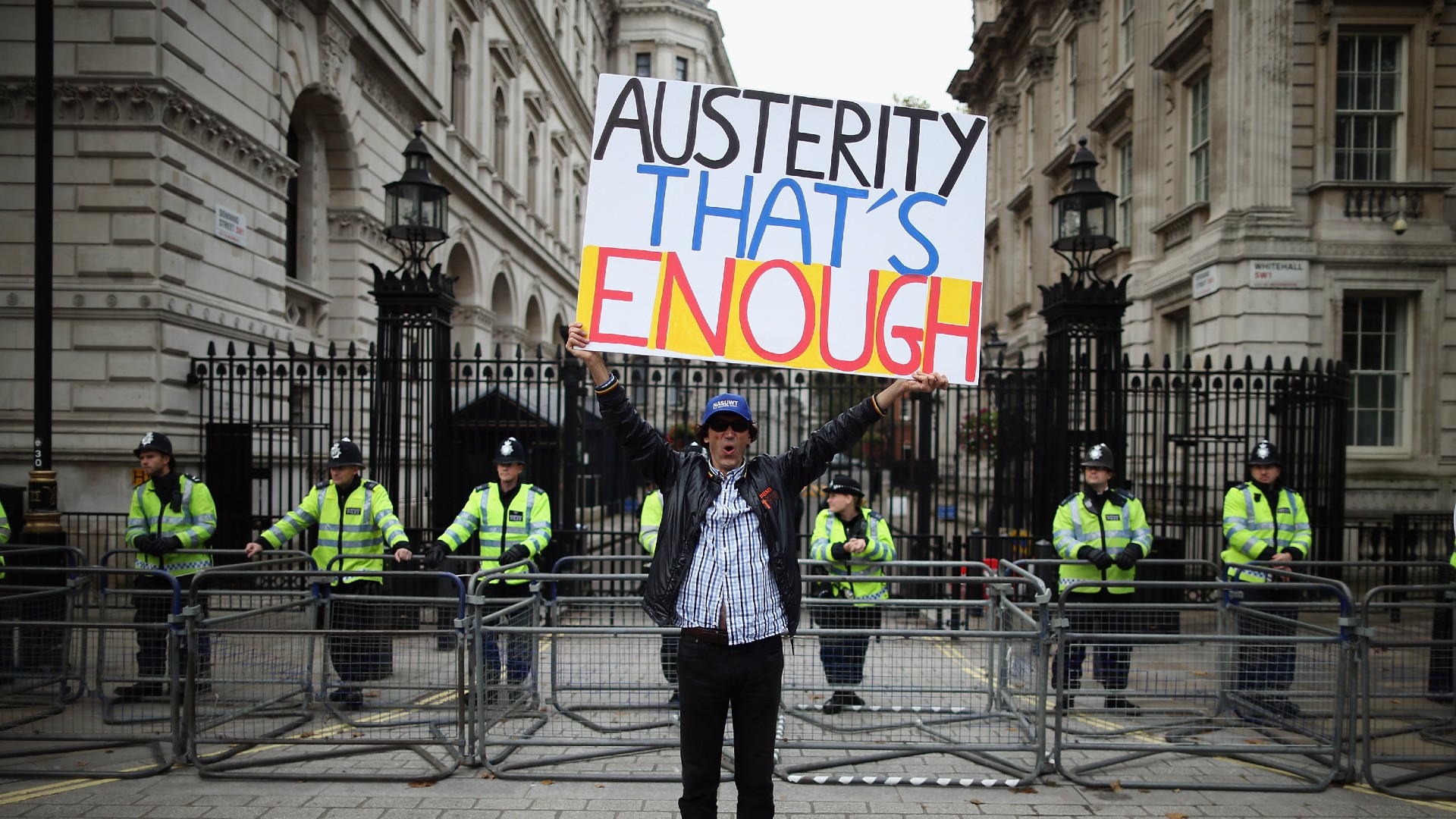 New austerity: can public services take any more cuts?
New austerity: can public services take any more cuts?Today's Big Question Some government departments already 'in last chance saloon', say unions, as Conservative tax-cutting plans 'hang in the balance'
-
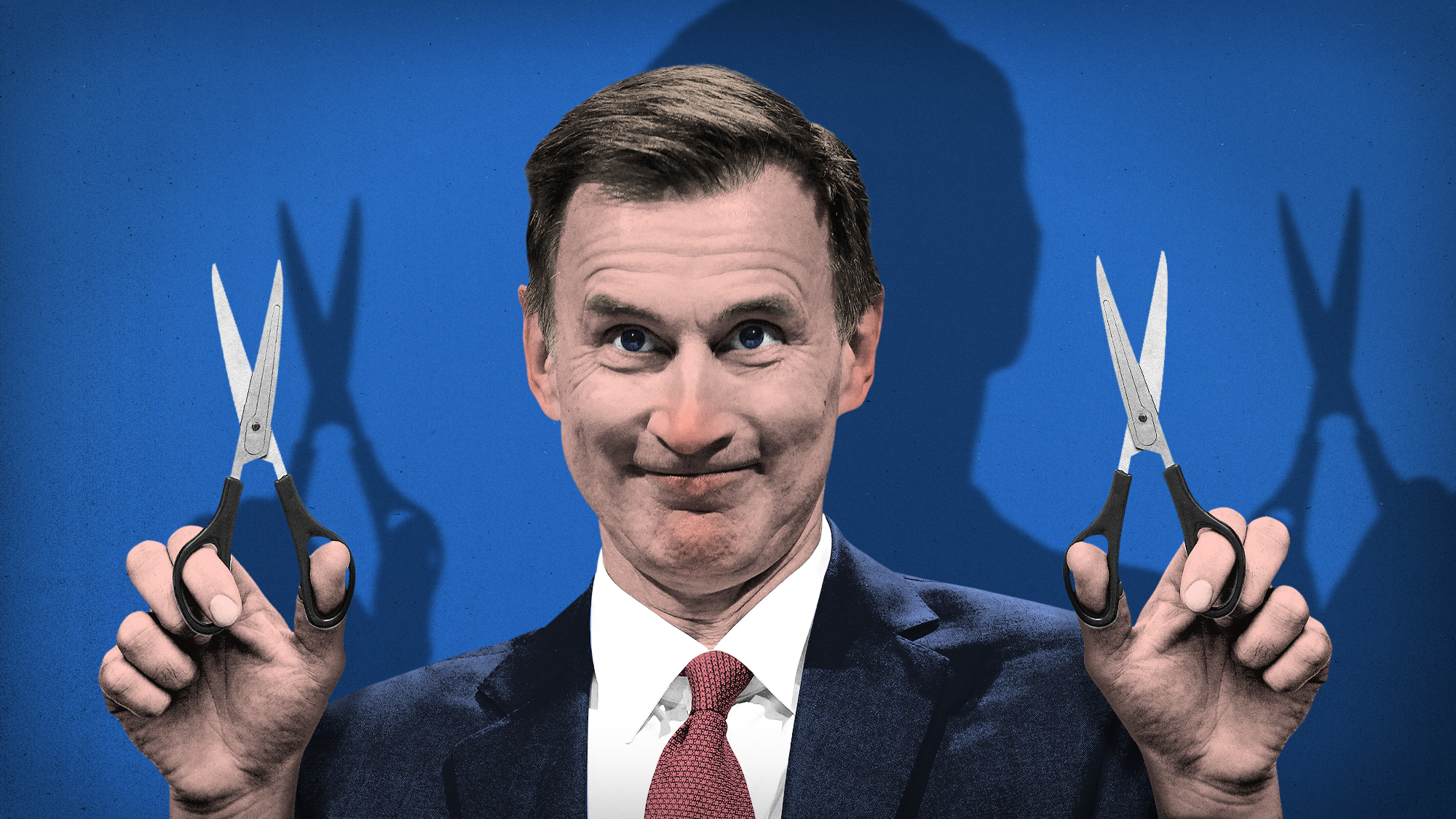 Five key takeaways from Jeremy Hunt's Autumn Statement
Five key takeaways from Jeremy Hunt's Autumn StatementThe Explainer Benefits rise with higher inflation figure, pension triple lock maintained and National Insurance cut
-
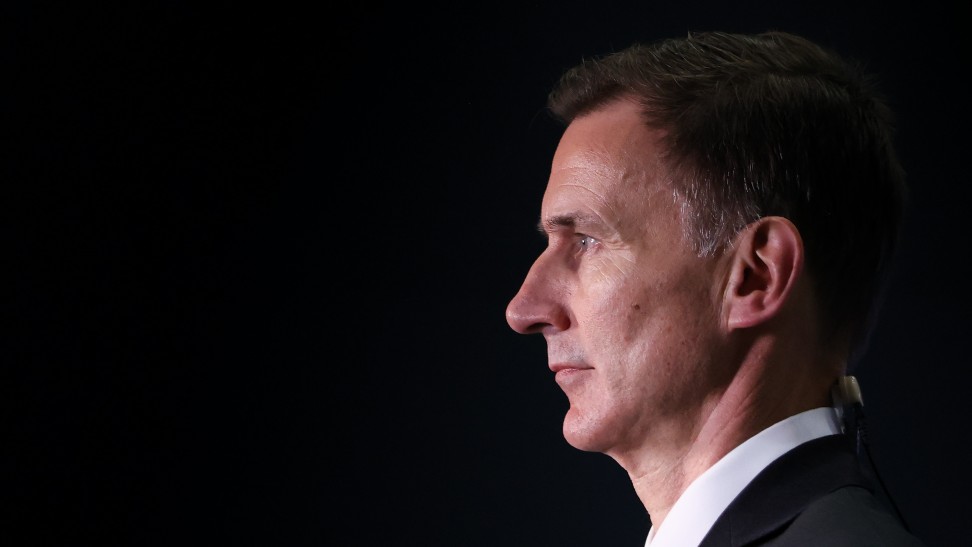 Withdrawing benefits: 'war on work shy' or 'matter of fairness'?
Withdrawing benefits: 'war on work shy' or 'matter of fairness'?Talking Point Jeremy Hunt to boost minimum wage while cracking down on claimants who refuse to look for work
-
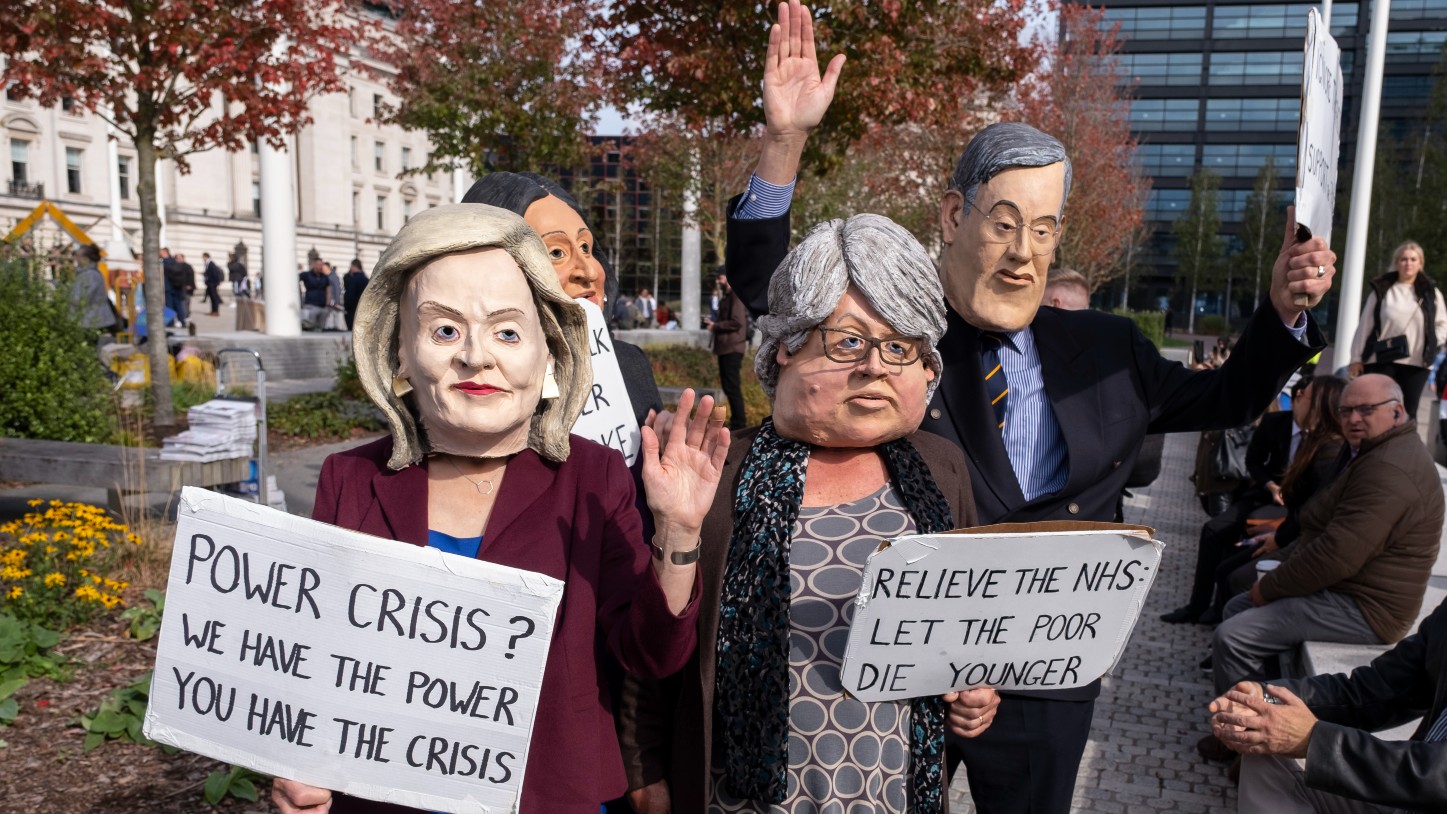 Liz Truss and Kwasi Kwarteng’s supply-side reforms
Liz Truss and Kwasi Kwarteng’s supply-side reformsfeature PM and chancellor are banking on cuts to regulations and tax in bid to stimulate growth
-
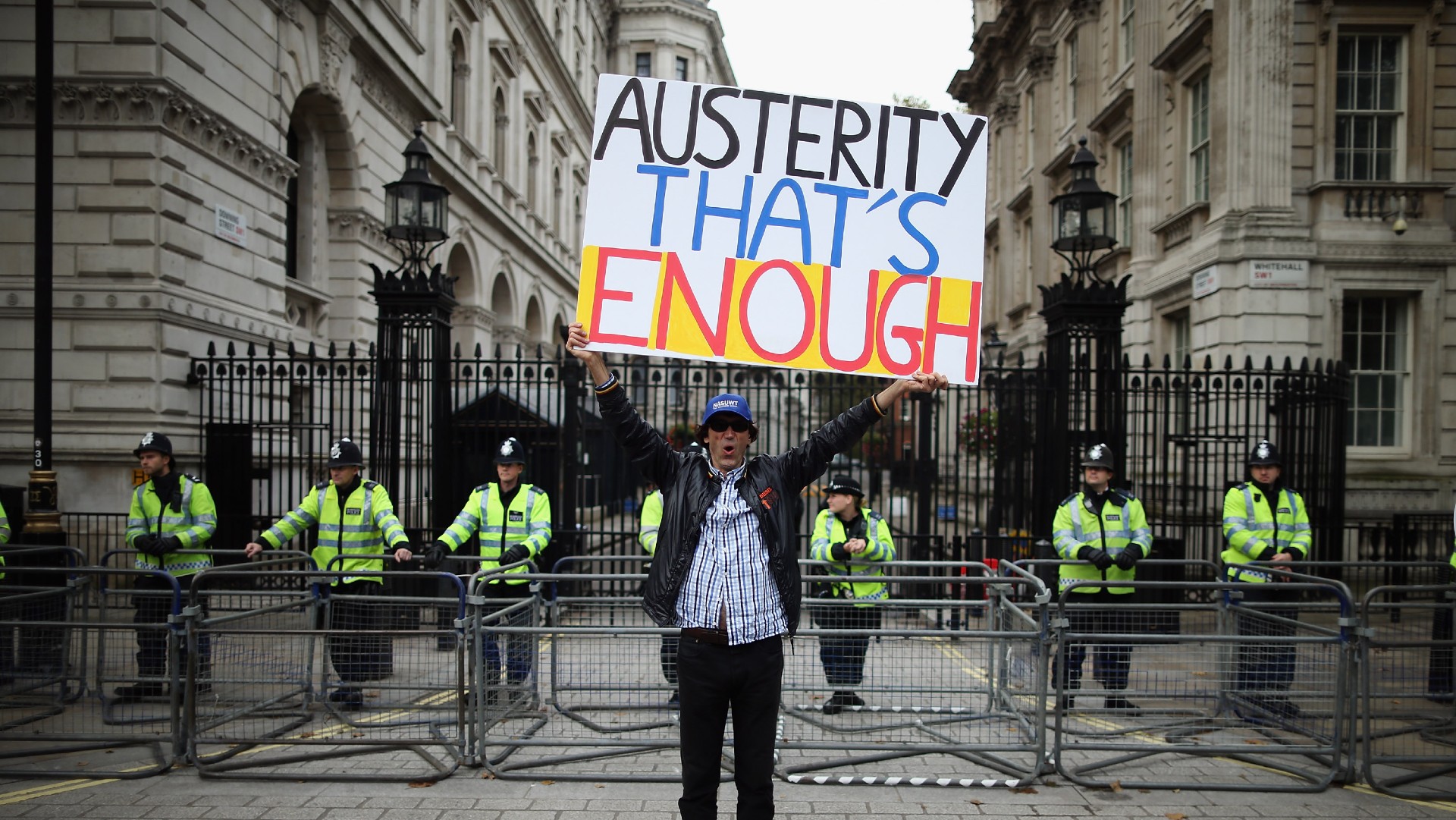 Do Tory tax cuts herald return of austerity?
Do Tory tax cuts herald return of austerity?Today's Big Question Chancellor U-turns on scrapping top rate tax but urges ministers to make public spending cuts
-
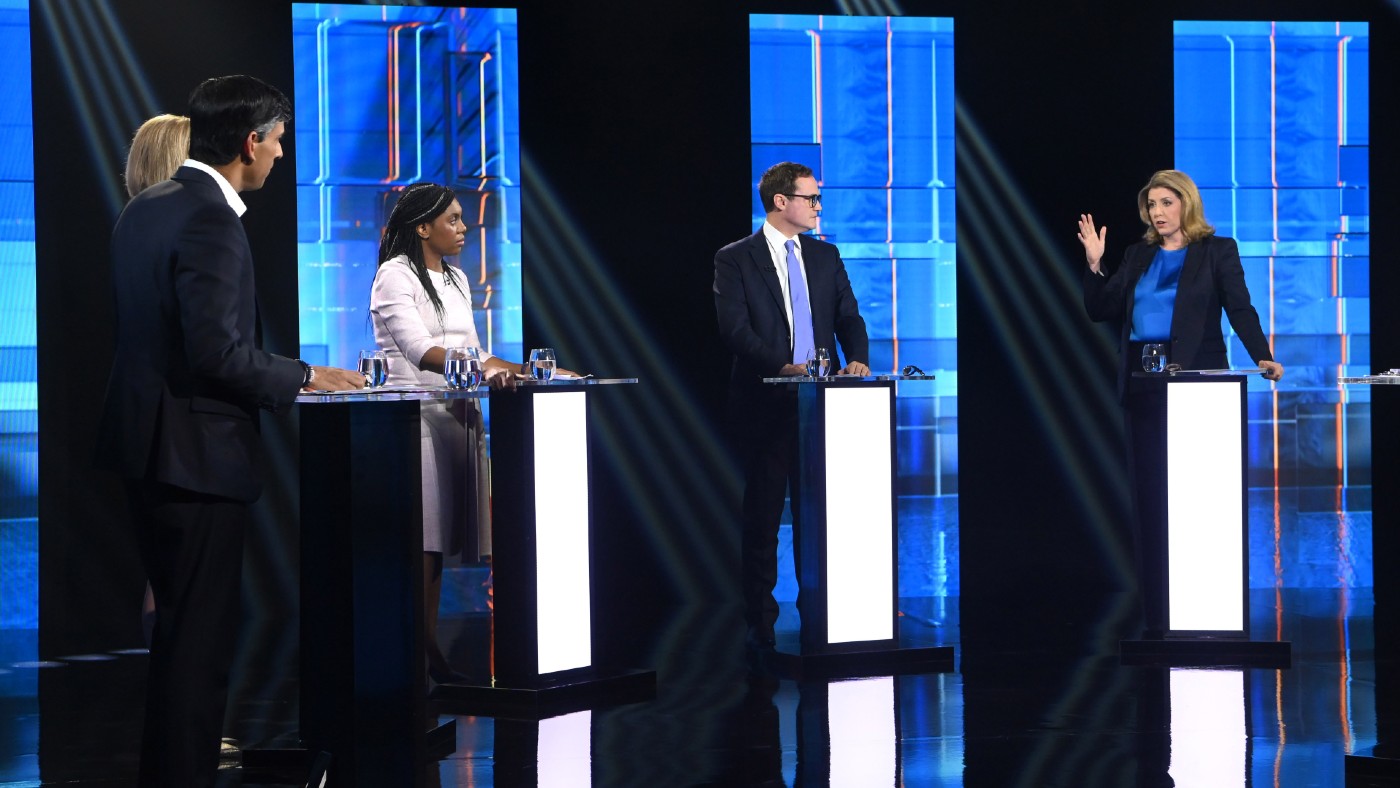 Tory leadership election: why tax cuts are an economic gamble
Tory leadership election: why tax cuts are an economic gamblefeature The candidates regard tax cuts as the road to redemption, only differing on the details of how much and how soon
-
 British wages are being squeezed - here’s why
British wages are being squeezed - here’s whyIn Depth Report says former Labour heartlands in the north of England have been hit hardest